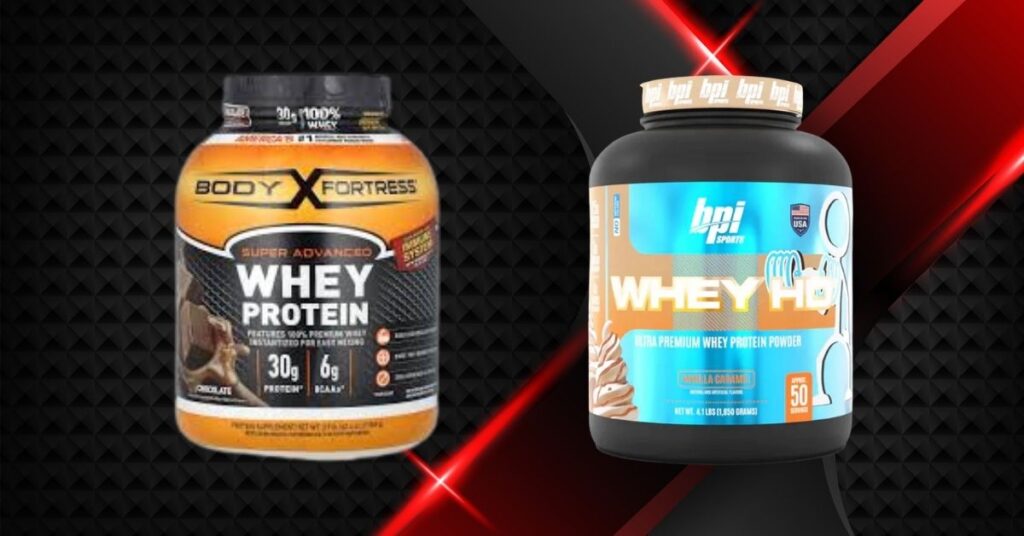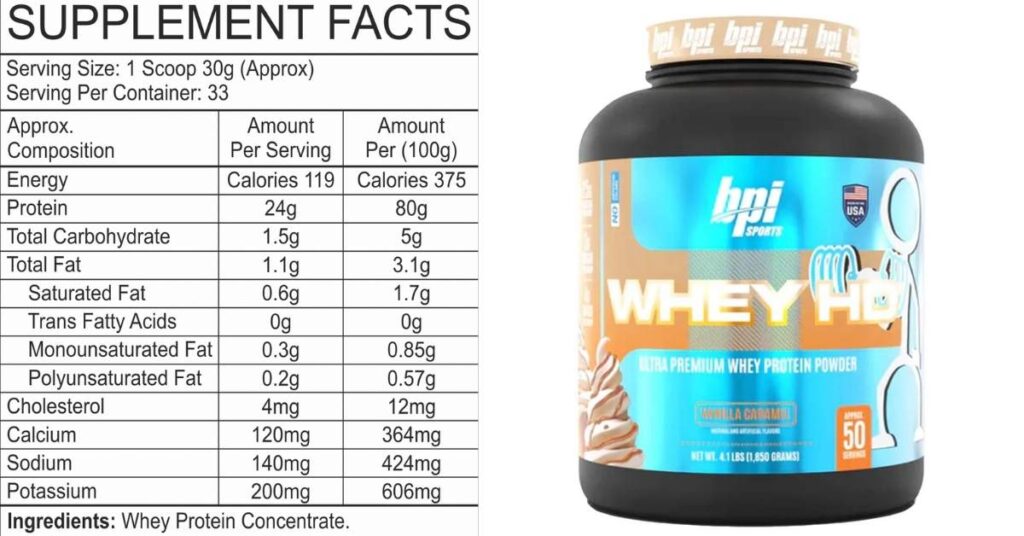Whey protein has become a go-to supplement for fitness lovers and athletes worldwide — but many Muslims wonder, is whey protein halal or haram?
The short answer: whey protein can be halal, depending on how it’s made and what ingredients are used. Since whey comes from milk, its base is naturally halal. However, certain additives, enzymes, or flavorings may make it haram.
In this guide, we’ll explain what makes whey protein halal, how to check halal certification, and how to choose halal whey protein powder that aligns with both your fitness goals and Islamic dietary values.
What Is Whey Protein & How Is It Made?

Whey protein is a natural by-product of milk, formed during the cheese-making process. When milk is curdled and strained, the leftover liquid is called whey — and it’s packed with protein.
This liquid is then dried and processed into whey protein powder, available in three main types: concentrate, isolate, and hydrolysate.
Because it’s rich in essential amino acids, it helps with muscle recovery, strength, and energy. For Muslims, understanding how it’s made is important since the enzymes used in cheese production, like rennet, can determine whether the whey protein is halal or haram.
You might also like: What is HALAL Gelatin?
What Determines If Whey Protein Is Halal or Haram?
The halal or haram status of whey protein depends mainly on how it’s made and what ingredients are used.
The biggest factor is the rennet used during cheesemaking. If it comes from an animal that was not zabiha-slaughtered, the whey becomes haram. However, if it’s derived from microbial or plant-based enzymes, it is halal.
Other things to check include alcohol-based flavorings, gelatin, and possible cross-contamination during manufacturing.
Always look for halal certification or verified labels from trusted authorities to make sure your whey protein powder meets Islamic dietary standards and is safe to consume.
How to Check If Your Whey Protein Is Halal?
To make sure your whey protein is halal, always start by reading the ingredient label carefully. Look for clear mentions of halal certification from trusted bodies like ISA, JAKIM, or Halal Foundation.
Avoid products that list animal rennet, gelatin, or alcohol-based flavorings. Check if the label mentions microbial or plant-based enzymes, which are halal-friendly. You can also contact the manufacturer or visit their website for verification.
Remember, some supplements may appear halal but are processed in facilities with non-halal ingredients, so checking for proper halal certification ensures you’re making a safe, faith-conscious choice.
Halal Certification Explained
Halal certification is an official assurance that a product meets Islamic dietary laws. For whey protein, this means every ingredient and step in production follows halal standards — from sourcing milk to packaging.
Trusted authorities like ISA, JAKIM, and the Halal Foundation inspect the ingredients, enzymes, and manufacturing process for compliance. Certified products often display a halal logo on their label, helping consumers identify safe options easily.
Always verify the certification’s authenticity, as some fake or unclear logos exist. Choosing halal-certified whey protein ensures purity, transparency, and confidence in what you’re consuming daily.
Common Misconceptions About Whey Protein & Halal Status
Many people believe all milk-based products are automatically halal, but that’s not always true. The rennet used in cheese production can come from non-halal animals, which affects the whey’s status.
Another myth is that vegan or vegetarian protein is always halal, but some may still include alcohol flavoring or cross-contamination during manufacturing.
Some also assume imported supplements are halal by default, which can be misleading. Always check for halal certification and trusted ingredient sources.
Understanding these misconceptions helps you choose halal whey protein powder that truly follows Islamic dietary rules and supports your fitness journey.
Recommended Halal Whey Protein Brands (Examples by Region)
Several trusted brands now offer halal whey protein powders for Muslims who care about fitness and faith. In Pakistan, options like The Protein Factory and NutraBio (Halal Certified) are popular.
In the UK and the USA, brands such as MyProtein (Halal Series) and Muscle Core Nutrition provide certified products. Always look for the halal logo on packaging or verify it on the company’s website.
Remember, even when buying online, it’s important to confirm the halal certification and ingredient transparency to ensure your whey protein supports both your health and Islamic dietary values.
Health & Fitness Benefits of Halal Whey Protein
Halal whey protein offers the same fitness benefits as any high-quality supplement — but with added peace of mind.
It helps build muscle strength, supports recovery after workouts, and provides quick energy. Because it’s derived from pure milk and processed according to halal standards, it’s free from harmful or forbidden ingredients.
For Muslim athletes and fitness lovers, it’s a great way to stay strong while maintaining faith. Choosing halal-certified whey protein ensures your nutrition aligns with your body goals and spiritual beliefs, keeping your fitness journey both clean and rewarding.
Halal Alternatives to Whey Protein

If you prefer plant-based options, there are plenty of halal protein powders made from soy, pea, or brown rice. These are great choices for those who are lactose-intolerant or want vegan-friendly nutrition.
Plant-based halal proteins provide essential amino acids and are easier to digest. Always check for halal certification and avoid blends that include non-halal additives or alcohol-based flavors.
Whether you choose halal whey protein or a plant-based supplement, both can help build muscle, improve recovery, and keep your nutrition in line with Islamic dietary standards.
You might also like: Is Parmesan Cheese Halal?
FAQs
Is whey protein isolate halal?
Yes, if it’s made with microbial or plant enzymes and certified by a halal authority.
What makes whey protein haram?
Non-zabiha animal rennet, alcohol flavorings, or cross-contamination.
Is cheese-derived whey halal?
It depends on the rennet source used during production.
Which brands are halal certified?
Brands like ISA-certified MyProtein and The Protein Factory offer halal options.
Can Muslims use whey protein daily?
Yes, as long as it’s halal certified and consumed in moderation for balanced nutrition.
Final Thoughts: Choosing the Right Halal Whey Protein
Choosing the right halal whey protein is all about awareness and trust. Always read ingredient labels, verify halal certification, and buy from reputable brands.
Whether you’re aiming to build muscle, lose fat, or simply stay fit, halal-certified supplements ensure your nutrition aligns with your faith and health goals. Avoid products with unclear ingredients or missing certifications.
By staying informed, you can enjoy all the benefits of whey protein while maintaining full confidence in your Islamic dietary values — keeping both your body and beliefs strong together.
Fahad Ali is a youth mentor and social activist committed to empowering the next generation of Muslims. By addressing contemporary issues through an Islamic perspective, He guides young minds in navigating faith, identity, and personal growth in today’s world.